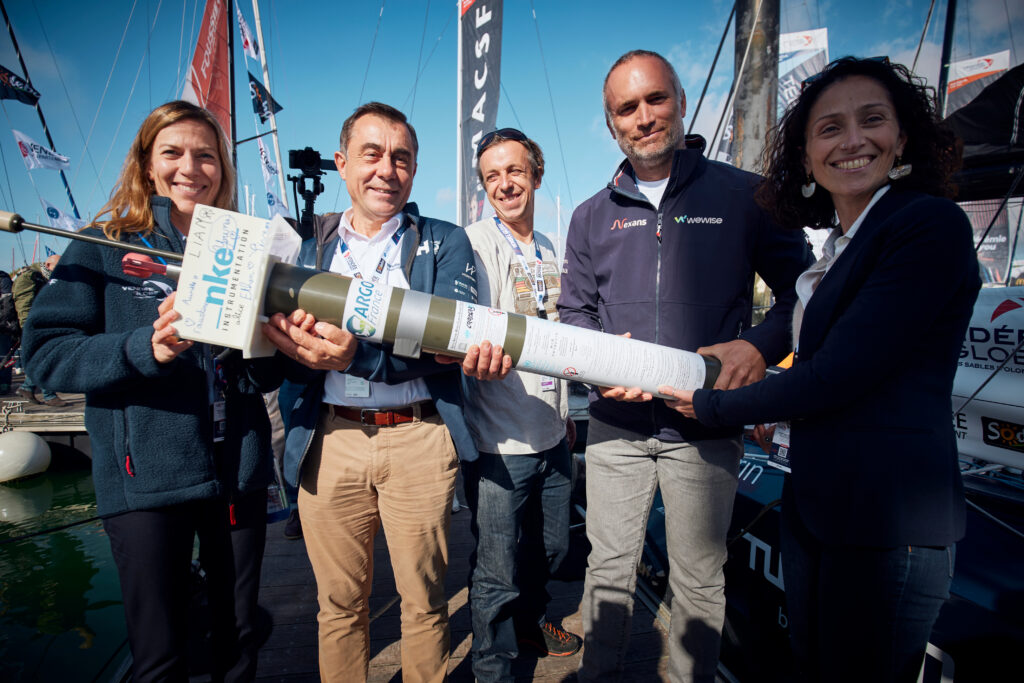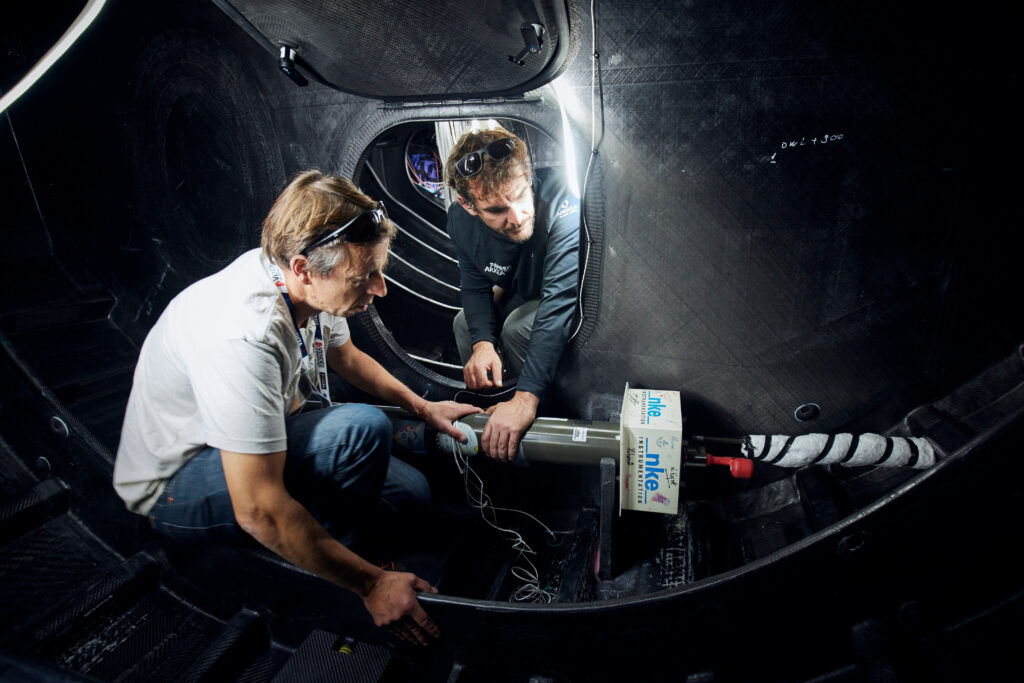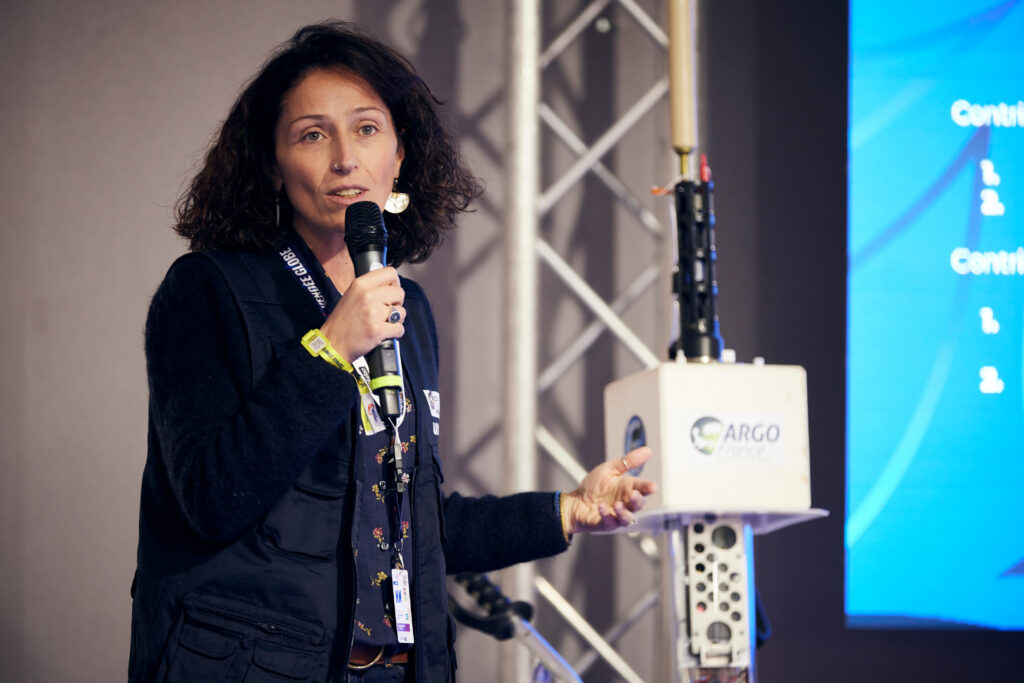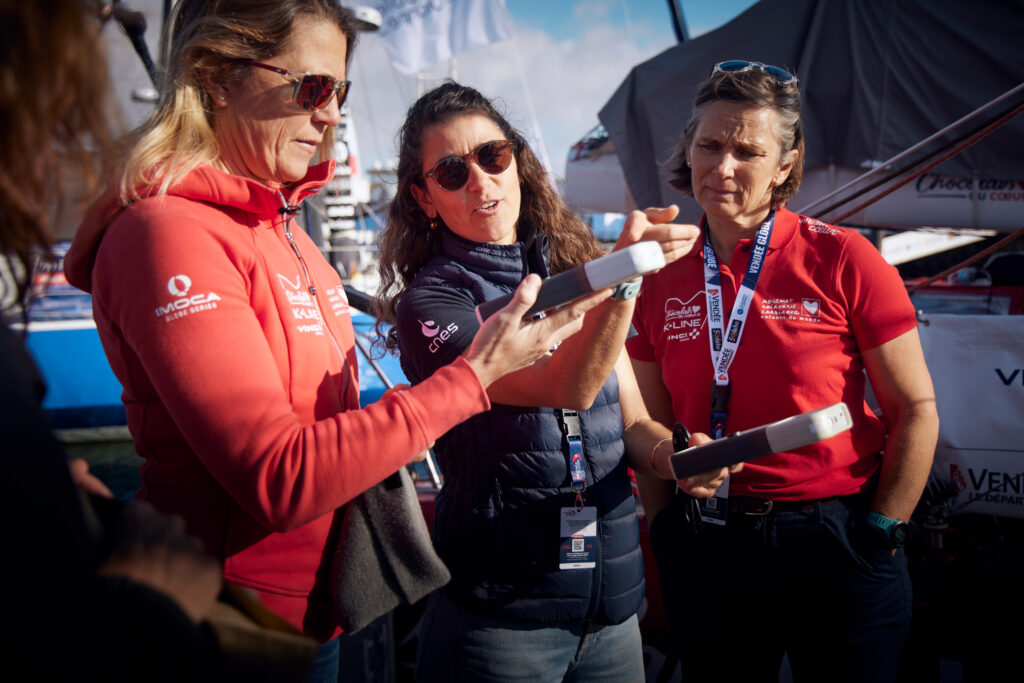On 22 and 23 October 2024, at Les Sables d’Olonne, 25 skippers participated in a groundbreaking initiative to receive training and scientific equipment to support ocean science and observations during the Vendée Globe 2024, the largest solo non-stop, round-the-world yacht race. These dedicated sailors are committed to advancing oceanographic research and weather forecasting by carrying and deploying scientific instruments provided by the World Meteorological Organization (WMO), UNESCO, and their scientific partners onboard their IMOCA yachts.

This collaboration between scientists and sailors will facilitate the real-time collection and distribution of essential data to users worldwide, including ocean temperature, atmospheric pressure, and dissolved carbon dioxide concentration. The data will contribute to the Global Ocean Observing System (GOOS), supported and coordinated by OceanOPS, the joint center of excellence established by WMO and UNESCO.
“The partnership with Vendée Globe skippers is an invaluable asset for the Global Ocean Observing System, extending our reach into some of the most remote and under-sampled areas of the world’s ocean,” says Joanna Post, Director of the GOOS Management Team. “By gathering real-time data, these sailors provide insights that would otherwise be impossible to obtain, enabling us to better understand and predict critical changes in ocean and climate patterns. Their contributions are vital for advancing ocean and climate knowledge, improving weather forecasts and early warning systems, and assessing ocean health,” she adds.
The skippers will use a range of scientific equipment, including drifting surface buoys, weather stations, autonomous profiling floats, mini oceanographic labs, and more, all designed to collect crucial met-ocean data. The instruments, supplied by major scientific institutes and agencies such as Ifremer, Météo-France, the UK Met Office, CNES, GEOMAR, the TARA Foundation, and ETH Zürich, feature cutting-edge technology.

Emanuela Rusciano, Science and Communication Coordinator at OceanOPS/UNESCO, engaged with the skippers over the two days at les Sables d’Olonne to emphasize the importance of ocean observations. “The partnership with the Vendée Globe and the IMOCA Class builds on over a decade of collaboration with offshore sailors. It’s a win-win situation, as sailors benefit directly from their contributions to science. By deploying weather buoys and collecting atmospheric pressure measurements, they enhance their own weather and ocean forecasts, which they can download during the race,” she says.
This collaboration between skippers and OceanOPS is part of the Odyssey project, launched in 2021 to support the United Nations Decade of Ocean Science for Sustainable Development 2021-2030. Odyssey calls on civil society to support GOOS and unlock the potential of citizens, ocean race sailors, mariners, NGOs and private sector, to ensure a more complete knowledge of the ocean.

To ensure the effectiveness of GOOS, it is essential to gather a maximum number of high-quality marine weather observations annually across all ocean regions. This includes deploying approximately 2,000 autonomous buoys at sea, similar to those that Vendée Globe skippers will deploy. Collaboration with these skippers is invaluable, as they enable data collection in difficult-to-access and under-sampled regions, such as the Southern Hemisphere, where the lack of observations presents significant challenges.
These initiatives also aim to raise public awareness and engage future generations in understanding the importance of ocean observation. Several educational programs, led by Ifremer and CNES, will accompany these scientific projects, integrating oceanographic sciences into classrooms while linking them to the Vendée Globe’s sporting adventure.

“As the race approaches, we are thrilled to see that over half of the fleet has committed to supporting ocean sciences,” says Mathieu Belbéoch, OceanOPS/WMO Manager. “But our ambition does not stop here. By 2028, we hope that all race boats will participate in this effort to support ocean sciences,” he adds.
Thanks to these collaborations, ocean race skippers are no longer solitary competitors at sea but also ambassadors for science, contributing to the understanding and preservation of our ocean for the benefit of humanity.
More on the 2-day event in Les Sables d’Olonne: https://www.youtube.com/watch?v=IrU0F1d3LZQ
About GOOS:
The Global Ocean Observing System (GOOS) is the global home of ocean observing expertise. We lead and support a community of international, regional and national ocean observing programmes, governments, UN agencies, research organizations and individual scientists. Our Core Team of expert panels, networks, alliances and projects, supported by the GOOS Office, is in touch with ocean observing and forecasting around the world. We are a programme led by the Intergovernmental Oceanographic Commission (IOC) of UNESCO, with UN and science co-sponsors: World Meteorological Organization (WMO), UN Environmental Programme (UNEP) and the International Science Council (ISC).
About OceanOPS:
Since 2000, OceanOPS has been the international hub and centre of excellence that provides vital services in monitoring and coordinating an expanding network of global oceanographic and marine meteorological observing communities, under GOOS. Based in Brest, the centre oversees the coordination, monitoring and harmonisation of 10,000 in situ marine meteorological platforms, including the Argo network – with nearly 4,000 autonomous underwater profilers launched since its inception – as well as the network of fixed and drifting buoys, the piloted profilers, and the research and voluntary vessels dedicated to met-oceanographic observations. Its 87-person team also develops web-based tools to monitor the status of the GOOS and its evolution.
About UNESCO-IOC:
The Intergovernmental Oceanographic Commission of UNESCO (UNESCO-IOC) promotes international cooperation in marine sciences to improve management of the ocean, coasts and marine resources. The IOC enables its 150 Member States to work together by coordinating programmes in capacity development, ocean observations and services, ocean science and tsunami warning. The work of the IOC contributes to the mission of UNESCO to promote the advancement of science and its applications to develop knowledge and capacity, key to economic and social progress, the basis of peace and sustainable development.
